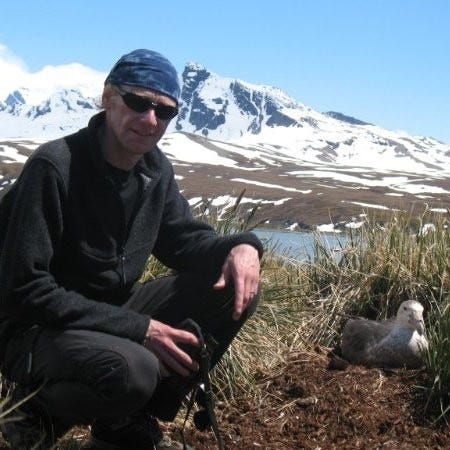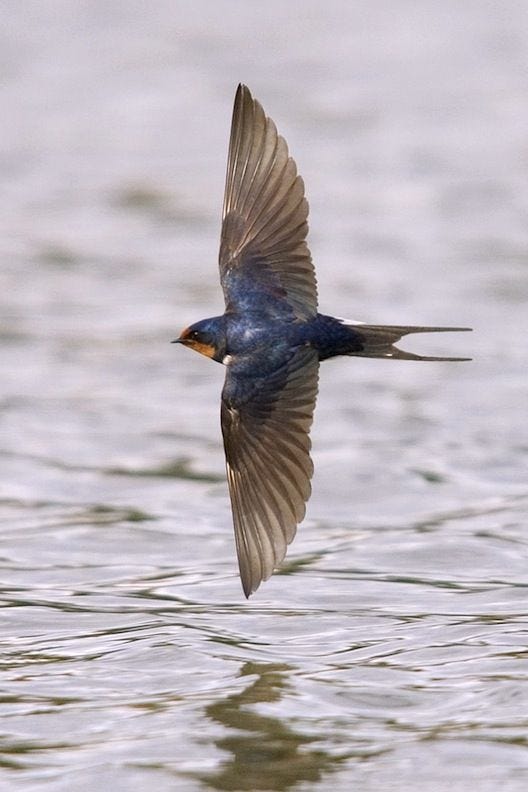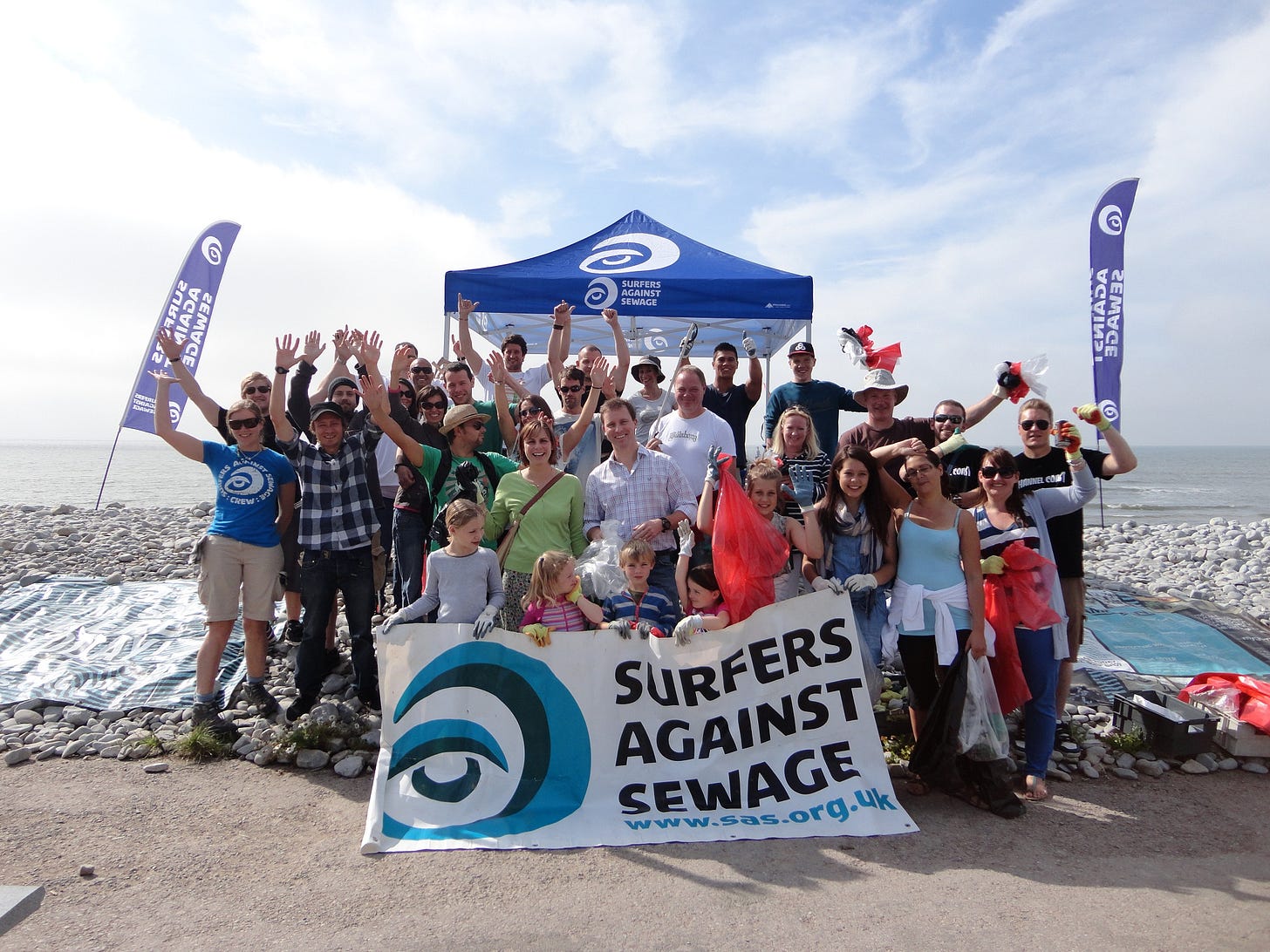🌱 The Grumpy Optimists x RSPB: In conversation with Olly Watts
On episode #57 of the Grumpy Optimists we’re talking climate change adaptation with Olly Watts from the RSBP.
Happy Monday Folks. 👋
Lately we’ve been thinking that it would be pretty cool to hear from a range of incredible people that are dedicated to tackling climate change, protecting nature, or just generally making this world a greener place. This week I (Mari here 👋) have been picking the brains of Olly Watts from the RSPB!
If you’re inspired by this week’s episode, check out our recommendations at the end of the blog.
🐦 A Chat with Olly Watts, RSPB
Olly is a senior climate change policy officer at the RSPB, the UK partner of BirdLife International. I first met Olly at a working group set up to bring together organisations working to help the natural environment adapt the climate change. The two things that struck me most about Olly were: 1) his infectious enthusiasm for nature 2) he was adamant on the need to embrace and make the most of the changes that a future climate will bring. Having barely started my role in climate change adaptation for Defra and having at that point only really read about how crap climate change is, this was pretty revolutionary to me.
Job Role: Senior Climate Change Policy Officer
Organisation: Royal Society for the Protection of Birds (RSPB)
Policy Areas: Climate change adaptation and peatlands.
The RSPB
You’d be forgiven for thinking that the RSPB only look at birds. Whilst conservation and protection of birds is a very important (and cool!) part of their work, their remit also covers conservation, research, policy and education on a whole host of important land uses, ecosystems, habitats and species. Olly’s two primary policy areas are climate change adaptation and peatlands.
Olly has recently shown me around Wallasea Island, one of the RSPB’s reserves on the estuary of the River Roach. It’s a cracking example of dynamic management of a mosaic of coastal and wetland habitats in the face of sea level rise and coastal erosion. Highly recommend a visit if you fancy a breath of fresh sea air and views of sleepy seals and avocets galore.
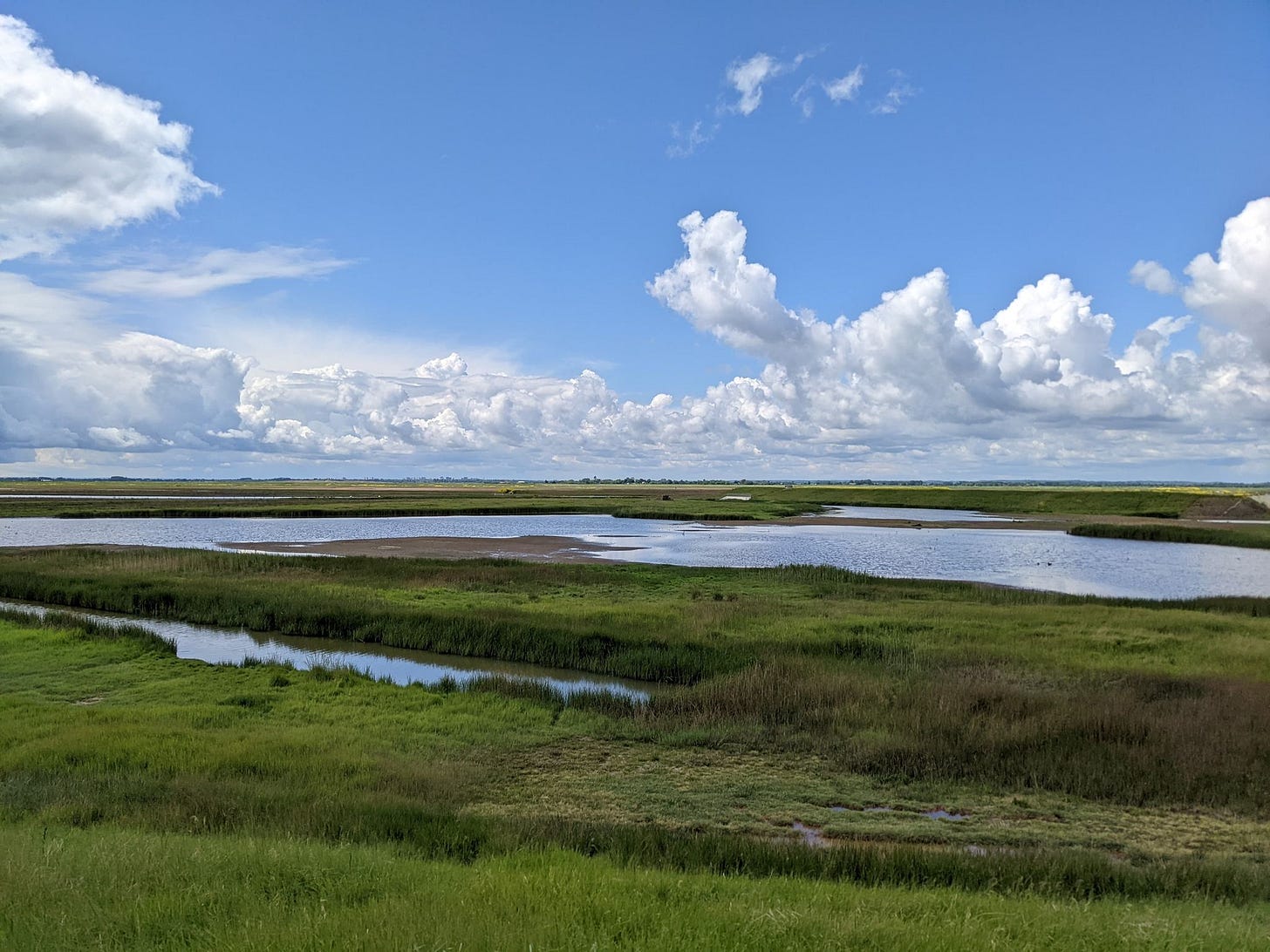
It was a delight to sit down and have a chinwag with Olly about climate change and nature. Let’s dig in. 👇
About Olly
Q: What is your favourite species and why?
I love swallows! They’re so graceful and beautiful. They come and visit us in the Summer, they live around our homes, they swoop low over water when I’m swimming, then they leave for the winter and we miss them. Golly, they travel the world! When I briefly went to the Falklands many years ago, we stopped for a short walk down to a beach. Out of the water came the first penguin I’d ever seen in the wild and then from the dunes swooped some swallows! It was the last thing I’d expected to see - an old friend from home! I also like dippers and kestrels.
Q: How did you get involved in your role?
I think it all goes back to Dad. He was very interested in birding and I caught the bug going out with him. I did a degree in environmental biology, which was a new concept at the time. I did a PhD in ecology and then spent a short time out in industry for 6 or 7 years, working for a bicycle company and then for a PR company. I learned how to do marketing and public affairs, which then got me into the RSPB doing communications. After 3 or 4 years I got a job linking communications to conservation. From there I became a policy officer and I developed from there.
Q: What are your perspectives from having worked in the private sector?
It was useful to have experienced industry before going into the world of NGOs and policy. It helped me understand different motivations and give me a degree of realism. It now helps me in my peatlands work, since I know how to build relationships with industry. It’s helpful in my peat work and trying to move the production of compost away from peat towards alternatives. Understanding the other side is very important when you’re trying to change things.
Q: What first made you care about climate change and the natural world?
The RSPB policy role was pretty much created for me to communicate on climate change, peatland and planning. The climate change element took over because it was very current and nobody really knew what to do about it. I got involved in a project looking at climate projections and species modelling. It was brilliant for getting a lot of different people from different conservation organisations together.
When we started to see all of the projected impacts emerging, it gradually dawned on us that climate change was going to fundamentally change nature conservation.
As someone who’s always been a bit mischievous, this really suited me because it was something new that we needed to think about in different ways. That was 20 years ago and we aren’t anywhere near where we should be.
Environmental Education
Q: It was interesting that you also said environmental biology was novel for the time. How do you see the direction of education and the environment going? Is it going in the right direction?
Oh absolutely! The course was only in its second year and nobody else wanted to do it! In comparison we were down in Cornwall last October. There was a party from Bristol University doing beach work and rock pooling. I went up to the tutor and asked what the motivation behind the work was. He responded:
“We’ve got to change the world, we’ve got to do something different. I think the students feel a deep connection to that”.
Education is so important. There are so many people working for the environment where it all started off quite young, often through a happenchance connection or visiting a reserve and thinking how important it is. Now that’s been formalised a bit more, the movement can really grow and we need to do much more. One of the headlines from the papers recently was from the Chair of the United Nations, urging students at a graduation speech to work for people who don’t destroy the planet: that is education. Education right from the start will help people make the right choices about how they want to live their life and make their money.
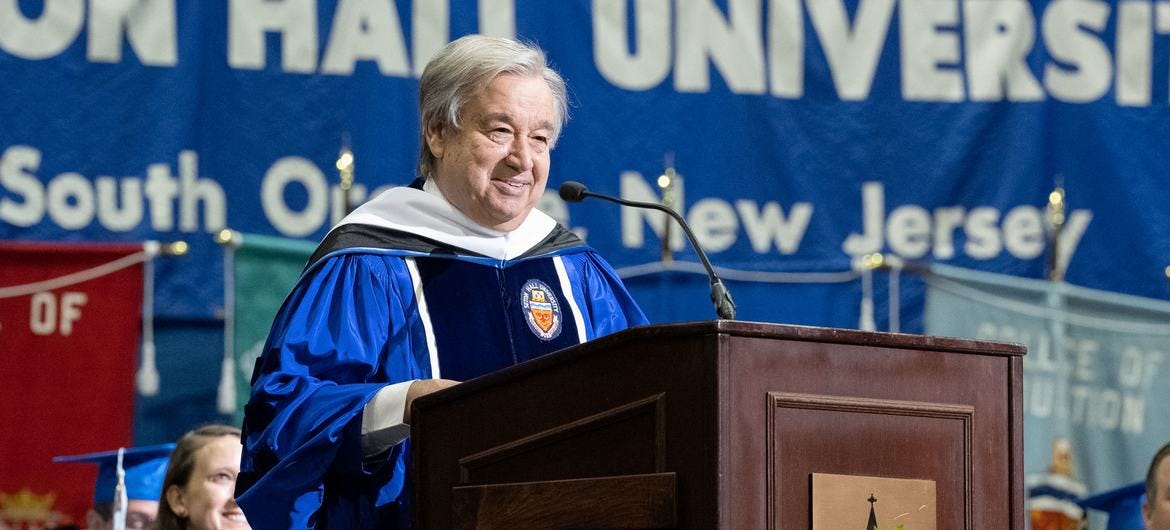
Adaptation and Learning
Q: Who or what has shaped your view of climate change and has your view evolved over time?
Yes, my view has evolved a lot over time. Climate change is really interesting because we have to listen to others. There’s a lot we don’t know so we need to keep honing down our knowledge.
Working with the Met Office for a period of many years and getting an understanding of climate projections has shaped my views and I really respect their work.
Climate change has really spurred thinking about what the right approach to nature conservation is. The RSPB has a very strong species focus, since we focus mainly on birds. My views have definitely broadened - I still think the species approach is really important, but I now think all the other approaches are also important! We don’t really know what the future is going to be like or what will work best. A rewilding project is unlikely to throw up benefits for specific species in trouble. The converse is if we focus on just 50 or so rare species, we won’t get the landscape scale benefits of rewilding. As long as a process is well thought out and has the resource to see it through, I think it’s important to take as many approaches as we possibly can.
Q: What climate change impact do you see as the most urgent right now?
It has to be nature, because that’s what I work on, love and am concerned about! We have a climate and a biodiversity emergency; the two go hand in hand. Over the course of my lifetime, there used to be birds everywhere and now there aren’t. Where the countryside has just been left without much management, you realise just how much we’ve lost. When you consider all that society has thrown at nature then add climate change on top of that, all the research says that nature just cannot keep up. We’ve also seen that nature is important to the quality of people’s lives during the pandemic. We are nature, we’re just another species on this planet!
Q: What has surprised you the most in your time working on climate change?
How hard it is to get the message across that we need to change. Walking into an organisation, a movement that’s been doing what it’s been doing successfully for decades and telling everyone we need to do conservation differently is hard. Let’s be honest, never in the evolutionary history of our species have we had to deal with climate change and done so successfully. Climate change is a factor that is completely new, that has got a widening of parameters that we don’t quite understand and everyone thinks they can put off for another three years or so.
Q: How has the RSPB changed its approach? What are they doing on the ground for climate change?
One of the advantages of having 220 or so nature reserves right across the UK is that we see the weather every day. Looking at that weather over a period of time has convinced us that this is part of a climate system that’s changing: rising sea level, storm surges, droughts, flooding, we have seen first hand that the climate change has been changing over the past 30 years. That’s made our reserves team very wise and alert, same as many farmers, that we need to do things differently. This ranges from the macro to the micro.
On the macro, for example, our coastal managed realignment projects involve taking away a sea wall to allow the water to come in, in a controlled manner. This allows the landscape to become a saltmarsh which provides space for water to go to and provides great habitats for birds, as well as flood protection for people.
As an example of the micro, at Winterbourne Downs we have a huge S-shaped bank for butterflies, grasses and flowers. Its shape gives you a variety of microclimates so that during a hot summer, everything can retreat to the northside and vice versa.
This has all helped us write a Climate Adaptation Manual with Natural England to advise land managers.
Engaging with Nature
Q: What would you say to someone who loves the environment but feels out of control to do anything about it?
Firstly, go out and enjoy nature. Don’t feel that you need to do so with a big pair of binoculars and a camouflage jacket. If you want to get into that, that’s fine, but it’s also fine just to go and have a walk.
Calm yourself, slow down, casually look around you. Just be in the moment and enjoy nature. We are all a tiny individual on this planet. A few people have a massive impact (sadly some make the wrong sort of impact) and that can be overwhelming: don’t feel you have to do that. Life is the most astonishing thing and it’s to be enjoyed and respected: for us and everything else we share the planet with. Do what you can, enjoy what you can, bathe in nature and let it rejuvenate you!
Support organisations who do things that you might like to do yourself. I’d obviously say support the RSPB because we’re a very effective nature conservation organisation. There’s a whole variety of different organisations that need your support to tackle their particular niche in the environmental sustainability mix, such as Surfers Against Sewage and Historic England. If you appreciate what they do, try to find a bit of money or time to help them do their work.
Q: And what would you say to someone who is interested in pursuing a career in the natural environment but doesn’t know how to get there?
Volunteering is great or just going on a guided walk and starting to get to know people who are interested and know a lot about nature. The best teachers of nature, apart from nature itself, are other people and nearly everybody is more than happy to share their knowledge.
Don’t think it has to be nature reserve focussed. A lot of people like Mari and I work in policy. You can also get involved by writing letters to your MP, chatting about it in your local pub, to your friends and just gently bringing others along. There are lots of ways to make a difference.
Q: What makes you grumpy and what makes you optimistic about climate change?
What makes me grumpy is having continually to say the same things to the same people again and again and they don’t listen! It’s the resistance and that classic “don’t look up” kind of thing. People who have selfish agendas get me grumpy too.
In terms of what makes me optimistic? Waking up every morning. Working in the environment, there are so many fab people that you talk to. We’re all trying to do the right thing: for nature, for wider issues, for our families and all kinds. Being able to work with those kinds of people is great. Working in industry was a different world: people weren’t as supportive or shared the same values. But even then, working in a PR company for a dairy, everyday I had yoghurt and cheese from people who have harder lives and are working to provide us with the things that we like! It’s a complex, interesting, difficult and inspiring world to live in!
Q: Do you have any further comments or questions for me?
I do like the idea of the Grumpy Optimists because it puts a bit of reality on optimism and a little bit of reality on grumpiness!
Here are my three takeaways from my conversation with Olly.
We have to think innovatively when it comes to responding to climate change. The same solutions won’t always work so it’s time to think outside the box.
Listen to those around you. We all have different experiences and ideas on what will work and we need to exercise a little bit of humility and consider other perspectives.
Don’t take life too seriously - it’s easy to get caught up in the doom and gloom with climate change. You can’t do better than your best - beyond that, just enjoy the birds and the trees!
🎙️ A podcast to check out
If you were inspired by Olly’s answers above, you might be interested in Get Birding: a podcast launched in the depths of lockdown to help people get out, bathe in birdsong and find out more about their local feathered friends.
📱An app to check out
There are a wide variety of bird identification books out there, but if you’d like something more lightweight or would like to “try before you buy”, I heartily recommend the Merlin app. The “Explore Birds” function lets you look at species likely to be found in your geographical area. There are call and song recordings for you to identify birds by sound, as well as informative descriptions about their ecology, behaviour and distribution maps.
I hope you enjoyed my conversation with Olly as much as I did. What are your thoughts on climate change and nature; has climate change changed the way that your place of work does things? When was the last time nature made you feel optimistic and how? Let us know in the comment section below and share with a nature-loving pal!
The Grumpy Optimists 💚



